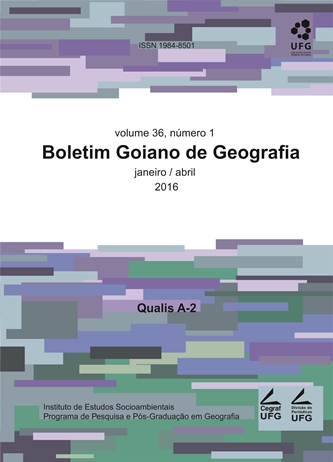SALÁRIO MÍNIMO E PREÇOS COMO DETERMINANTES DE COMPLEMENTARIDADE EM CONURBAÇÕES BINACIONAIS - DOI 10.5216/bgg.v36i1.40379
DOI:
https://doi.org/10.5216/bgg.v36i1.40379Resumo
A taxa de câmbio é uma informação relevante para compreensão da integração comercial nas cidades conurbadas binacionais ou cidades-gêmeas. Discutimos outro elemento para compreender os processos de integração e complementaridade comercial. O valor do salário mínimo e seu poder de compra em cada lado da fronteira, nesse caso, a conurbação de Pedro Juan Caballero (Departamento de Amambay - Paraguai) e Ponta Porã (Mato Grosso do Sul - Brasil). A pesquisa realizou levantamento de preços em janeiro de 2013 e outubro de 2015 para confirmar a hipótese de que a conurbação tem um movimento pendular e orgânico que transcende o efeito do dólar como moeda de compra. O dólar é elemento estruturador do turismo de compras, mas não do cotidiano das cidades-gêmeas.Palavras-chave: cidades conurbadas binacionais, fronteira, cidades-gêmeas, práticas de fronteirização.
Downloads
Não há dados estatísticos.
Downloads
Publicado
2016-03-21
Como Citar
PEREIRA LAMOSO, Lisandra. SALÁRIO MÍNIMO E PREÇOS COMO DETERMINANTES DE COMPLEMENTARIDADE EM CONURBAÇÕES BINACIONAIS - DOI 10.5216/bgg.v36i1.40379. Boletim Goiano de Geografia, Goiânia, v. 36, n. 1, p. 177–196, 2016. DOI: 10.5216/bgg.v36i1.40379. Disponível em: https://revistas.ufg.br/bgg/article/view/40379. Acesso em: 8 fev. 2026.
Edição
Seção
Artigos











